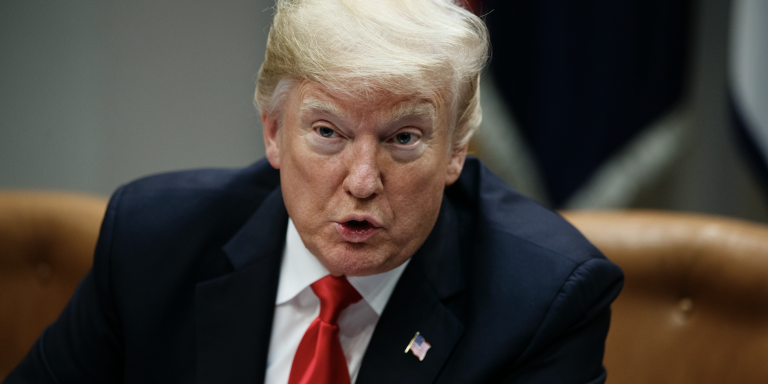INTELBRIEF
December 20, 2018
IntelBrief: The U.S. Remains Incapable of Formulating a Coherent Syria Strategy

- On December 19, 2018, President Trump unexpectedly announced a full withdrawal of all U.S. troops in Syria within the next 30 days.
- This pronouncement is at odds with the administration’s current strategy, as well as counsel of top military leadership.
- The Defense Department has strongly reiterated the need to maintain a longer-term presence in Syria to counter growing Iranian influence.
- This mercurial shift in the administration’s Syria strategy is beyond alarming to long-time U.S. allies, especially the Kurds.
.
.The December 19 tweet by President Trump on a matter of foreign policy was characteristically dramatic and devoid of details. The President tweeted, ‘We have defeated ISIS in Syria, my only reason for being there during the Trump Presidency.’ The tweet was preceded by press reports that the administration had decided to withdraw all U.S. military ground forces from Syria within 30 days. Press Secretary Sanders released a follow-on statement that suggested the U.S. has ‘started returning United States troops home as we transition to the next phase of this campaign.’ With the President’s tweet and the short follow-on White House statement, the U.S. has completely reversed its policy of supporting Syrian rebel forces fighting the remaining strongholds of the so-called Islamic State. It is has also completely undermined a key part of what the administration says is one of its top foreign policy and national security concerns: the containment and countering of Iran’s influence in the Middle East and beyond.
As recently as last week, U.S. military officials were stressing the necessity of maintaining a meaningful military presence and force posture in northeastern Syria. The long-term presence was intended to accomplish two goals: ensure that the recent military diminishment and near-defeat of the Islamic State in Syria was preserved, and to prevent Iran from further expanding its already significant reach and influence in Syria. The U.S. military presence has been contentious for the Assad regime and its Russian and Iranian backers; American support for the Syrian Kurds has been a source of concern for Turkey that is difficult to overstate. The withdrawal of on-the-ground American support for the Syrian Kurdish forces, who have been by far the most effective and reliable U.S. allies in the anti-Islamic State fight, will be an existential crisis for these forces. Without a U.S. presence, Ankara will most certainly move against Kurdish positions in Syria. The abandonment of the Kurds is a shameful consistency in U.S. policy that spans five U.S. administrations.
It is unclear how the President’s tweet will be realized on the ground and translated into subsequent policy. From a logistical standpoint, the removal of 2,000 U.S. troops and their equipment is difficult to achieve in anything less than a frenzied rush to the exits. The U.S. has numerous small forward operating bases (FOBs), some air fields, and observation posts along the Syrian-Turkish border. The void created by the physical withdrawal of the U.S. will create a rush by its adversaries, including IS remnants, to move in and fill the power vacuum. There are issues regarding a U.S. military presence in Syria that deserve serious and sustained debate, something that has not happened with either the U.S. Congress or the electorate. The authorization of a continued U.S. presence in Syria to counter Iranian influence is, even for the broadly interpreted Authorization for the Use of Military Force (AUMF), wholly unjustified.
The manner in which the decision to reverse such an important strategy, through a brief announcement on social media, is anathema to the kind of stable statecraft upon which U.S. alliances and global security depend. At this early stage, it is unclear if this strategy change will actually happen. After all, President Trump has made sweeping declarations before, primarily via Twitter, that ultimately signified nothing but confusion to our allies with little actual policy change. The military is reportedly opposed to such a dramatic move, yet the President sets policy, as is fitting in a civilian-led democracy. Five years into American involvement in Syria, the United States is still desperately grasping for a coherent strategy with well-defined objectives. In the absence of such a strategy, it now seems that the U.S. will withdraw its forces, abandon its Kurdish allies, and prematurely declare victory against the Islamic State. If Washington follows through on this withdrawal, it will have essentially forfeited its only remaining leverage in shaping the future of Syria, a country located in the heart of the most complex geopolitical environment in the world.
.
For tailored research and analysis, please contact: info@thesoufancenter.org
[video width="960" height="540" mp4="https://thesoufancenter.org/wp-content/uploads/2018/12/IB-1220.mp4" poster="https://thesoufancenter.org/wp-content/uploads/2018/12/Screen-Shot-2018-12-20-at-03.01.12-1-e1545264267469.png"][/video]